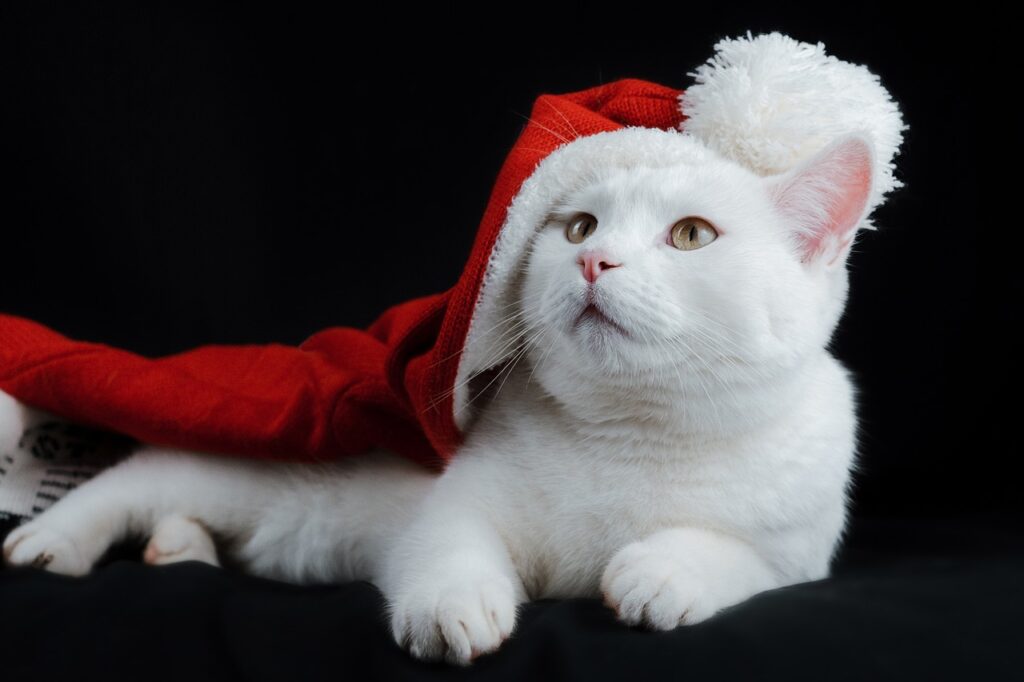Can Cats Eat Dog Food? – No, They can’t
It might be tempting to think that what’s good for one pet is suitable for another, but when it comes to feeding cats, dog food is a big no-no. Although the occasional nibble of dog food won’t harm your feline friend, it definitely shouldn’t be a staple of their diet. Cats have specific nutritional needs that dog food fails to meet. Without certain vital nutrients, like taurine, cats can develop serious health issues. So, consider dog food as an off-limits snack for your meowing pal.
Can Kittens Eat Dog Food?
No, kittens, in particular, should not eat dog food. Their growing bodies require an especially nutrient-rich diet to develop properly. Kittens need more protein, amino acids, and vitamins, which are precisely formulated in kitten-specific food. Feeding a kitten dog food, even in small amounts, can lead to malnutrition and developmental deficiencies.
Things to consider when feeding dog food to kittens?
Always remember that a kitten’s dietary requirements are much different than a pup’s. For proper growth and health, kittens need food that’s high in protein and certain vitamins and minerals. Dog food lacks these crucial components. Additionally, a kitten’s smaller jaw and digestive system are not suited to handle the larger chunks and different textures found in dog food.
Nutritional Benefits of Dog Food for Cats – Why Dog Food is bad for Cats
Lack of Taurine
Dog food doesn’t contain enough taurine, an essential amino acid that cats need to maintain good eyesight, digestion, and heart function. Cats can’t make taurine themselves and failing to get enough can cause serious health issues, including heart disease and blindness.
Inadequate Protein Levels
Cats are obligate carnivores, meaning they thrive on a diet primarily made up of meat. Dog food often has lower protein levels than cat food, which can lead to muscle loss and other health problems in cats if fed regularly.
Insufficient Fatty Acids
Arachidonic acid, an omega-6 fatty acid found in animal tissue, is another critical component missing from dog food. This acid is vital for cats for reproduction, skin growth, and overall cell function.
Imbalanced Vitamin A
Cats require a direct source of Vitamin A in their diet because, unlike dogs, they cannot convert beta-carotene from plant sources into Vitamin A. Dog food lacks this direct source, making it unhealthy for feline consumption.
Inappropriate Nutritional Profile
The overall nutritional profile of dog food is not aligned with what cats require. This includes the ratio of specific nutrients such as vitamins, minerals, and amino acids crucial for a cat’s immune system, skeletal health, and metabolism.
Potential Allergies: Can Cats Be Allergic to Dog Food?
Although allergies to dog food are not common in cats, it is possible for them to develop a food allergy or intolerance to certain ingredients found in dog food, just as they might with any type of food. It’s essential to monitor your cat for any adverse reactions.
Symptoms of Dog Food Allergies in Cats
- Gastrointestinal Troubles: Watch for signs like vomiting or diarrhea, which can indicate an intolerance or allergy.
- Skin Irritations: Look out for any unusual hair loss, itching, or rashes, as these may be symptoms of a reaction.
- Respiratory Issues: Although less common, be aware of any coughing, wheezing, or sneezing after consuming dog food.
What to Do If Your Cat Shows Symptoms?
- Immediate Diet Revision: Remove dog food from your cat’s diet completely to see if symptoms improve.
- Veterinary Consultation: It’s always advisable to consult a vet for a professional opinion and possible allergy testing.
- Symptom Management: Follow your vet’s guidance on managing any ongoing symptoms while identifying the allergens.
Recommended Amount: How Much Dog Food Can a Cat Consume?
While the accidental ingestion of dog food may not be an immediate cause for alarm, it is not recommended that cats consume dog food at all. If you discover that your cat has eaten dog food, monitor them closely for any adverse effects and transition them back to their regular cat food as soon as possible.
Things to Consider When Feeding Dog Food to Cats
Always prioritize cat-specific formulated food to ensure your feline receives the correct balance of nutrients. If you find it challenging to keep your cat away from dog food, consider feeding your pets in separate areas and at different times.
How to Feed Dog Food to Cats: A Quick Guide
Ideally, you should not feed dog food to cats. However, it’s important to offer your feline a balanced diet tailored to their needs. Cats require a various mix of nutrients, which are available in high-quality commercial cat foods or well-researched homemade recipes designed specifically for cats.
Not Recommended
Since it’s not recommended to feed dog food to cats, providing recipes for this purpose would be inappropriate and potentially harmful to feline health.
Not Recommended
Again, as dog food does not cater to the nutritional needs of cats, no recipes can be recommended for mixing dog food into a cat’s dietary regimen.
Not Recommended
To ensure the wellbeing of your cat, avoid feeding them dog food altogether, and opt for nutritionally complete cat food instead.
Conclusion
To sum up, while cats might show interest in dog food, it’s clear that it’s not a suitable option for their diet. Cats and dogs have evolved with different dietary needs, and what works for one will not necessarily work for the other. Always reach for cat food that is formulated to match the specific nutritional needs of your furry feline friend to keep them healthy and happy.



